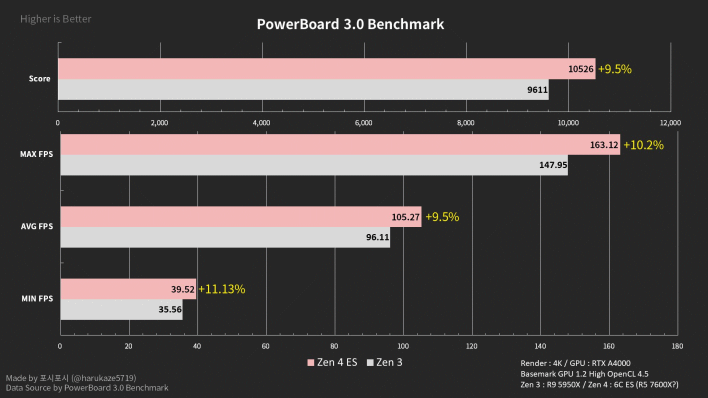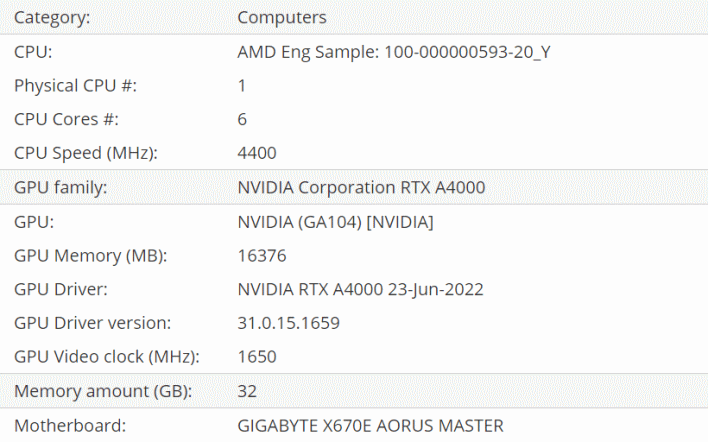If it seems like an immense proportion of the news we cover lately comprises
leaks and
rumors for upcoming hardware, that's because it does. There is so much new hardware on the way from AMD, NVIDIA, Intel, and many other vendors. Of course, our focus is on PC hardware and adjacent technologies, so naturally it's the big three we're usually excited about.
The showdown late this year between Intel's
last monolithic CPU design (at least for the foreseeable future) and AMD's first
Socket AM5 CPUs should be explosive. The Ryzen 7000 series processors using AMD's refined Zen 4 architecture promise to bring improvements in
almost every area besides core count, while Intel's piling on the E-cores, stacking up L2 cache, and revving up the clock rates for
its next generation.
Basemark GPU
We haven't seen many leaks of Zen 4 CPUs yet. Back in March we saw a Geekbench leak that
purported to be an EPYC Genoa CPU with Zen 4 cores, and that's about it until today's leak. Spotted by TUM_APISAK on
Twitter, the entry in the Basemark GPU database describes a system with an "AMD Eng Sample: 100-000000593-20_Y" CPU.
It would be a reasonable guess in any case that this was an early Zen 4 chip, but the motherboard is listed as a GIGABYTE X670E AORUS MASTER. X670E, of course, is the top-end chipset configuration for AMD's socket AM5, at least in the first generation. Given the very clear incompatibility between sockets AM4 and AM5, that means that this must be a Ryzen 7000 series processor.
The chip has 6 cores, and Basemark registered its clock rate as 4400 MHz. That's pretty interesting, because this benchmark normally lists a processor's base clock in that space. For example, our Ryzen 7 5800X3D gets marked down for a 3400 MHz base clock—fully 1 GHz slower. That
doesn't mean that Ryzen 7000 series chips will launch with hilariously-high base clock rates, mind you, but it's interesting nonetheless.
Now, Basemark GPU is obviously a GPU benchmark, but it still benefits from faster CPUs and main memory speed, particularly the latter. If we could find a benchmark of a similar system using the same video card, we could compare the two to see the difference. Indeed, @harukaze5719 did just that, locating a result in the PowerBoard database with a Ryzen 9 5950X CPU and the same RTX A4000 GPU (similar to RTX 3070.)
Comparing the two results using 포시포시's handy graph, we can see that the Zen 4 chip outpaces the 16-core Zen 3 chip by over 11% in minimum FPS. The average FPS difference is a little smaller, but these are still impressive gains in what is primarily a GPU-bound benchmark. Given the qualities of this benchmark, we suspect much of the difference is down to the newer chip's DDR5 memory, but it's impossible to say for sure until we get our hands on one of these puppies.





